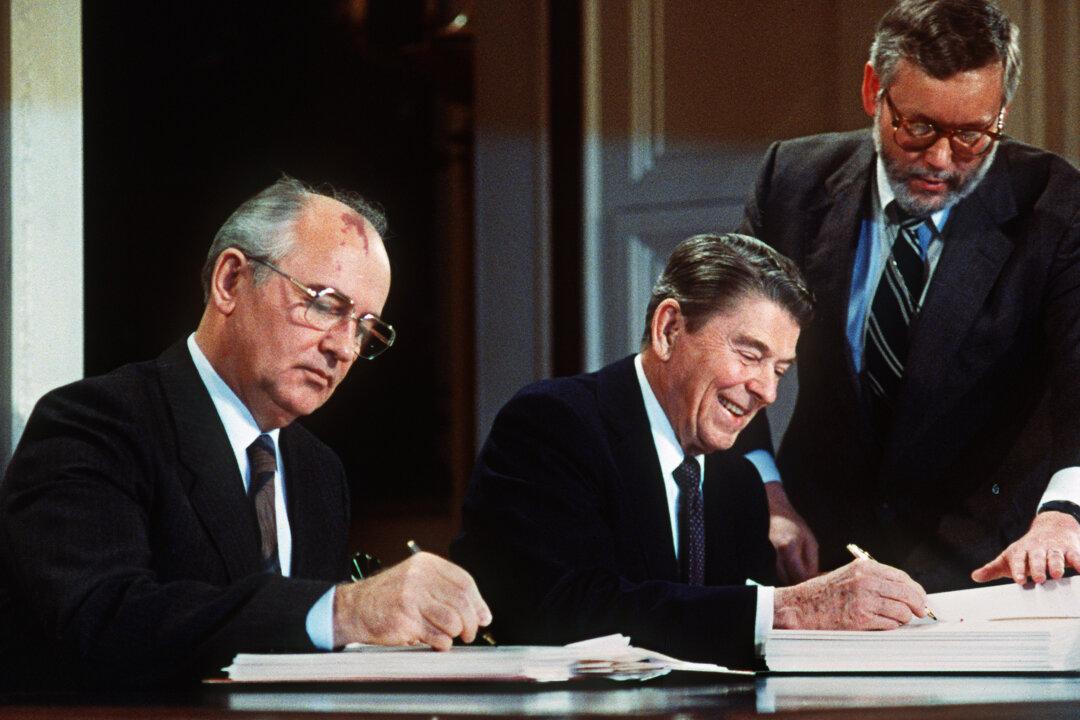WASHINGTON—This year marks the 30th anniversary of the fall of the Berlin Wall, and valuable lessons could be learned from former President Ronald Reagan’s policies and vision that contributed mightily to the bloodless collapse of the Wall and the Soviet empire.
Reagan repeatedly said that his strategy for the Soviet Union was simple: “We win, they lose.” But he knew the war against the Soviets wouldn’t be fought on the battlefield with guns and rockets.





